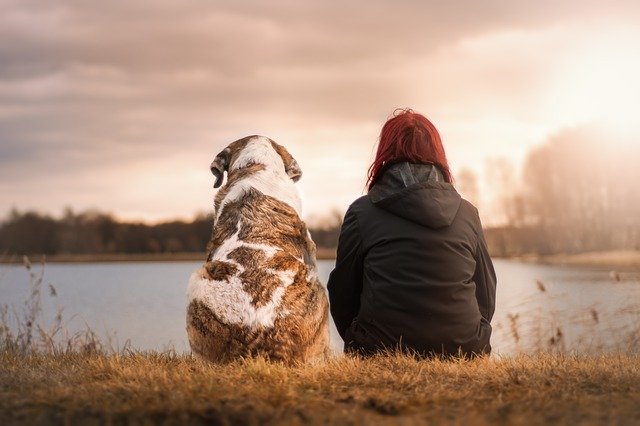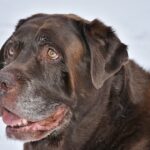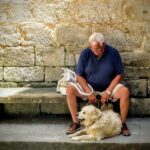Signs your dog is in pain, plus other senior dog concerns.
Like senior people, senior dogs benefit from measures aimed at helping prevent pain and increase comfort. Discomfort can sap your senior dog’s energy, making it harder for him to cope with more serious health problems. Look at your dog’s environment and routines with a comfort-oriented perspective: What can you do to help make life easier for his aging body?
Reduce arthritis pain.
Dogs suffering from osteoarthritis will walk with a stiff gait and may show other signs of pain. These dogs deserve the very best dog bed you can afford. Place it away from drafts and cold rooms.
For the same reason, don’t expect your elderly dog to climb stairs to get to his bed, food, or water. Cover slippery linoleum, wood, or tile floors with carpet runners so he can cross them without the risk of his legs splaying out, which can cause painful muscle injuries and aggravate any existing conditions.
Although most dogs look forward to their daily exercise, keep walks short for arthritic dogs. Joint-health supplements can be helpful for these pets.
Groom for health as well as beauty.
Many senior dogs can develop a parched, flaky coat. Use conditioning shampoos specifically for dry coats, and incorporate coat-health supplements into your dog’s diet. You can also consider supplementing your dog’s diet with several teaspoons of flaxseed or cottonseed oil per feeding. (This can add significant calories to the diet, so proceed cautiously with overweight dogs.)
Too-long toenails will interfere with your dog’s ability to walk and stand comfortably, straining his muscles as he struggles to maintain his balance or compensates with an irregular gait. Trim nails regularly so they are even with the bottom of the footpads. Groom longhaired dogs regularly to help prevent mats; the difficulty of removing them can add trauma your senior dog just doesn’t need.
Deal with phobias and anxiety.
Senior dogs may develop phobias and anxiety as they grow older. It is not uncommon for some older dogs to suddenly get extremely anxious when thunderstorms start rumbling or the wind starts howling. Some dogs may develop separation anxiety when they are left alone. Don’t crate a fearful or a nxious dog. Products such as pheromones are available over-the-counter and from veterinarians and may help alleviate anxiety.
If your dog’s been with you for many years, you can sometimes miss the day-to-day changes that signal age-related discomfort. Make a point to observe his behavior and routines specifically for ideas about how you can repay his faithful companionship with extra comfort in his senior years.





